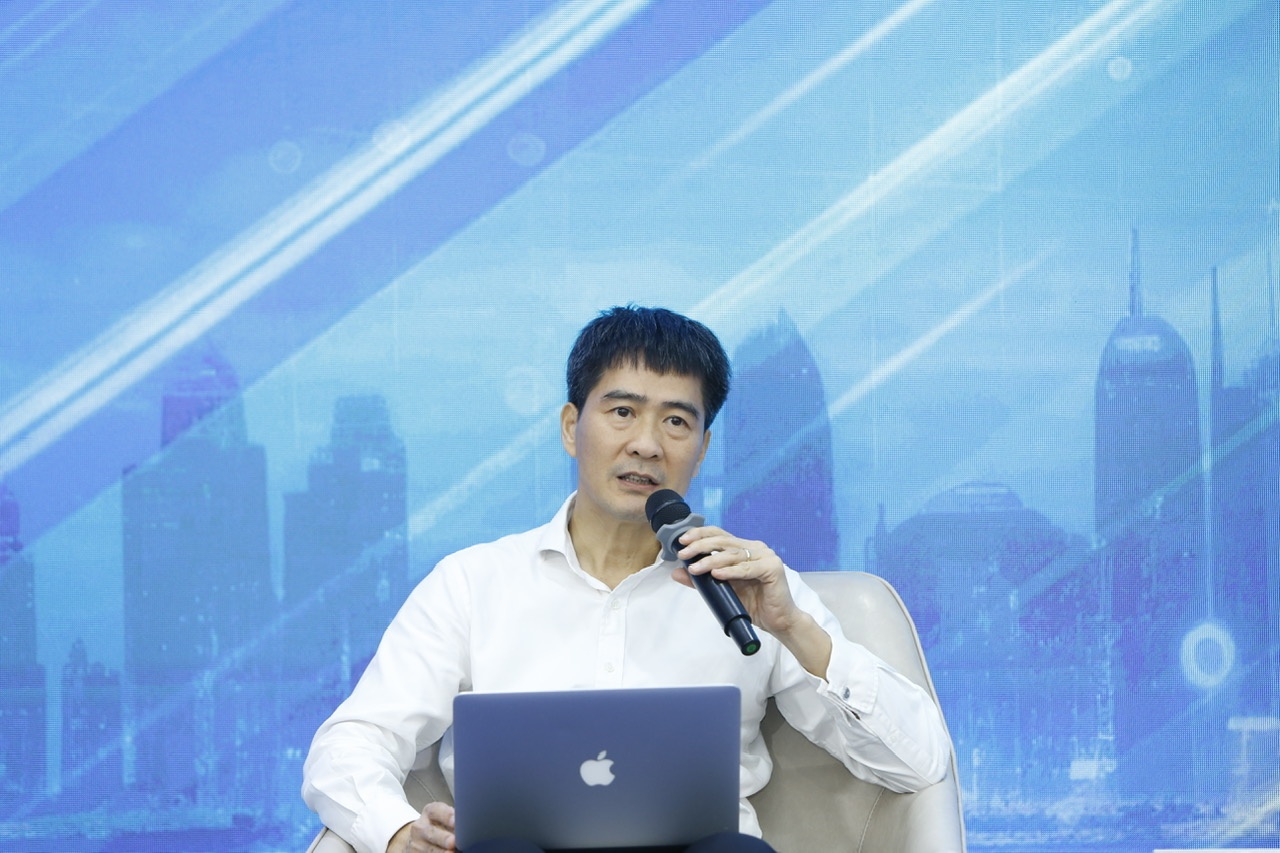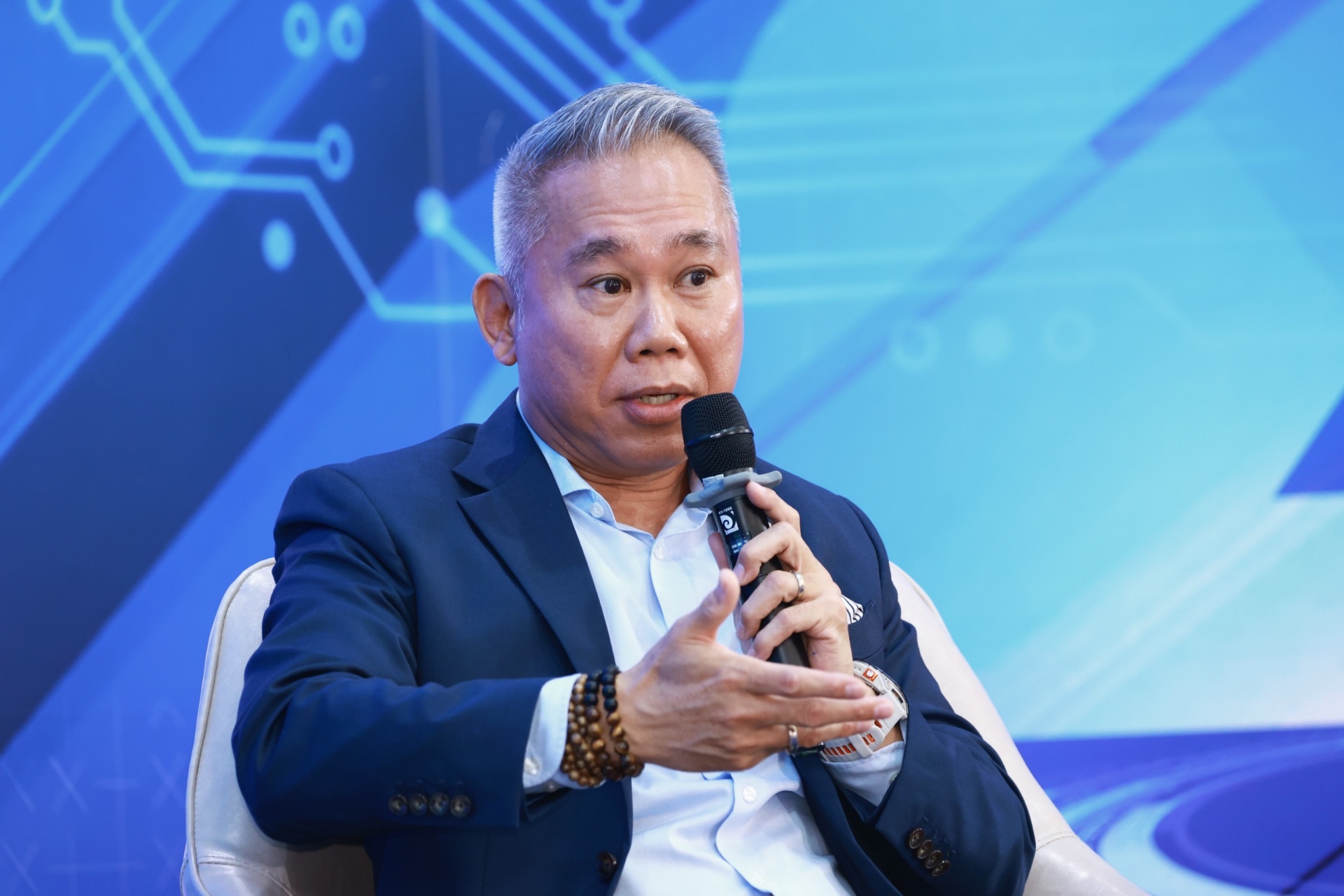VIR panel says 5G could transform Vietnam
 |
| Experts at the first panel discussion |
Nguyen Phong Nha, deputy director, the Authority of Communications, the Ministry of Information and Communications (MIC), opened the discussion by emphasising the rapid global and domestic progress of 5G commercialisation. "5G has already been commercialised in many parts of the world, and Vietnam is following suit," said Nha.
Nha highlighted a key milestone in April, when the MIC successfully auctioned the rights to use the B1 (2500-2600 MHz) and C2 (3700-3800 MHz) frequency bands, generating over VND10 trillion ($407 million) for the state budget. This, according to Nha, demonstrates a strong commitment from businesses to invest in 5G.
 |
| Nguyen Phong Nha, deputy director, Authority of Communications, MIC |
"By April next year, licensed companies will be required to provide 5G services to the market," he added.
He also highlighted the critical role that mobile broadband technology played during the recent storms and floods in Vietnam. "During these crises, 5G enabled remote medical consultations and diagnostics by transmitting critical images, providing essential healthcare services to those in affected areas," Nha said. Following the recent Yagi storm, he stressed that businesses are continuing to invest in 5G infrastructure, recognising its potential to transform various sectors.
 |
| Rita Mokbel, president, Ericsson Vietnam |
Rita Mokbel, president of Ericsson Vietnam, further underscored the transformative power of 5G, particularly in entertainment and healthcare.
"In Singapore, we partnered with Singtel to offer an enhanced viewing experience for Formula 1 fans. With 5G, audiences could capture and share content in real time, creating a more immersive experience," Mokbel explained.
"In healthcare, 5G has significantly improved remote diagnostics by enabling faster and more reliable transmission of patient data to doctors," she added.
Mokbel also shared insights from other countries where 5G has had a positive impact. "India, for example, has quickly adopted 5G, which has contributed to economic growth. In Ireland, we used private 5G networks to improve port management, reducing downtime and boosting efficiency. In France, we implemented 5G-powered automation solutions at airports, and in Italy, we’ve supported port operations."
Turning to Vietnam, where the government is deploying nearly 100 smart cities, she emphasised 5G’s potential to revolutionise industries.
"For manufacturing, 5G will enhance operational efficiency, engage high-quality foreign investment, and elevate Vietnam’s position in global supply chains," she concluded.
 |
| Eric Yeo, Country general manager, AWS Vietnam |
Meanwhile, Eric Yeo, Country general manager, AWS Vietnam focused on 5G’s role in fostering innovation in Vietnam.
"Vietnam has a vibrant entrepreneurial spirit, and its workforce is keen to learn and adopt new technologies like 5G and generative AI," he said.
He praised Vietnam’s rapid uptake of technology and the country's growing pool of tech talent. AWS, as a key player, has been instrumental in building these capabilities, particularly in cloud computing.
"For example, Techcombank is using AWS to deploy large language models not only in IT but across various departments, including accounting and marketing, making it easier for staff to adapt to new technology," he noted.
Eric also highlighted VPBank’s forward-thinking culture, where employees at all levels are eager to learn about emerging technologies like AI.
The discussion then shifted to a broader view of Vietnam’s digital infrastructure, with Remi Nguyen, a representative from EuroCham Vietnam, highlighting the country’s progress.
 |
| Remi Nguyen, EuroCham Vietnam |
"Vietnam’s digital infrastructure has grown significantly, driven by government-led initiatives to expand digital services," he said. Vietnam is currently transitioning from 4G to 5G, with pilot 5G services already being rolled out in major cities. While the potential is vast, challenges remain.
"One of the key issues is the low availability of 5G-compatible devices. Additionally, regulatory reforms are needed to entice more private investment in the telecoms sector," he explained.
Nguyen also stressed the importance of continued investment in digital infrastructure, along with legal frameworks that incentivise collaboration between private and foreign enterprises.
What the stars mean:
★ Poor ★ ★ Promising ★★★ Good ★★★★ Very good ★★★★★ Exceptional
Related Contents
Latest News
More News
- A golden time to shine within ASEAN (February 19, 2026 | 20:22)
- Vietnam’s pivotal year for advancing sustainability (February 19, 2026 | 08:44)
- Strengthening the core role of industry and trade (February 19, 2026 | 08:35)
- Future orientations for healthcare improvements (February 19, 2026 | 08:29)
- Infrastructure orientations suitable for a new chapter (February 19, 2026 | 08:15)
- Innovation breakthroughs that can elevate the nation (February 19, 2026 | 08:08)
- ABB Robotics hosts SOMA Value Provider Conference in Vietnam (February 19, 2026 | 08:00)
- Entire financial sector steps firmly into a new spring (February 17, 2026 | 13:40)
- Digital security fundamental for better and faster decision-making (February 13, 2026 | 10:50)
- Aircraft makers urge out-the-box thinking (February 13, 2026 | 10:39)

 Tag:
Tag:

















 Mobile Version
Mobile Version